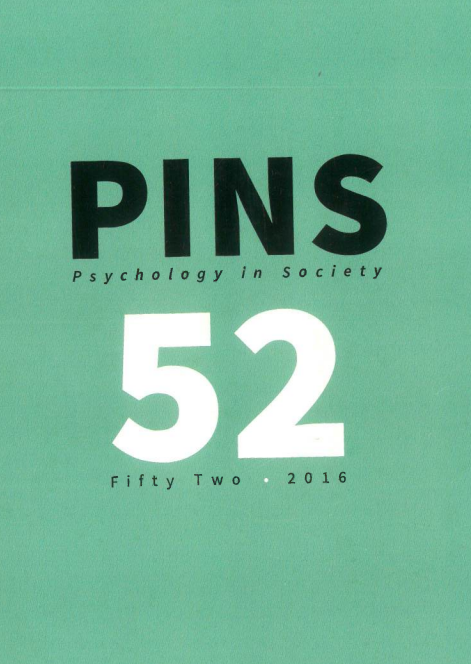“From psychology in Africa to African psychology”: Going nowhere slowly
DOI:
https://doi.org/10.17159/2309-8708/2016/n52a1Keywords:
African psychology, decolonization, modernity, transmodernityAbstract
This provocation reimagines the dominant indigenisation discourse of psychology in South Africa, which conceives the process of “decolonizing” as equivalent to “Africanizing”. I argue that some African psychologists’ indefatigable insistence on narrow localism and ethno-theorising, is a cowardly defeatism and an accessory to domination. The in toto refusals of Western psychology, are themselves ahistorical and totally ignorant of the historicity and historical anteriority of Africa in science. Western knowledge is neither monolithic, nor the sole property and prerogative of the West. Africa has significantly contributed to its creation and should admissibly make foundational claims on it. I gesture at a different decolonial ethics, grounded on the Dusselian transmodernity, pluriversalism and ethical universalism, to negotiate the incongruous obscure particularism of some African psychologists, and also disabuse modernist psychology of its false universalisms. The paper reads ultra-essentialist responses to modernism as still being intrinsically Eurocentric, in that they have rather ironically continued to reinforce the process of “Othering” and negating through their fixation with identity politics and cultural reductionism.
Downloads
Downloads
Published
How to Cite
Issue
Section
License
This journal is an open access journal, and the authors' and journal should be properly acknowledged, when works are cited.
Authors may use the publishers version for teaching purposes, in books, theses, dissertations, conferences and conference papers.
A copy of the authors’ publishers version may also be hosted on the following websites:
- Non-commercial personal homepage or blog.
- Institutional webpage.
- Authors Institutional Repository.
The following notice should accompany such a posting on the website: “This is an electronic version of an article published in PINS, Volume XXX, number XXX, pages XXX–XXX”, DOI. Authors should also supply a hyperlink to the original paper or indicate where the original paper (http://www.journals.ac.za/index.php/pins) may be found.
Authors publishers version, affiliated with the Stellenbosch University will be automatically deposited in the University’s’ Institutional Repository SUNScholar.
Articles as a whole, may not be re-published with another journal.
The copyright of the article(s) lies with the author(s).
The copyright of the journal lies with PINS-psychology in Society.
The following license applies:
Attribution CC BY-NC-ND 4.0 - https://creativecommons.org/licenses/by-nc-nd/4.0/

